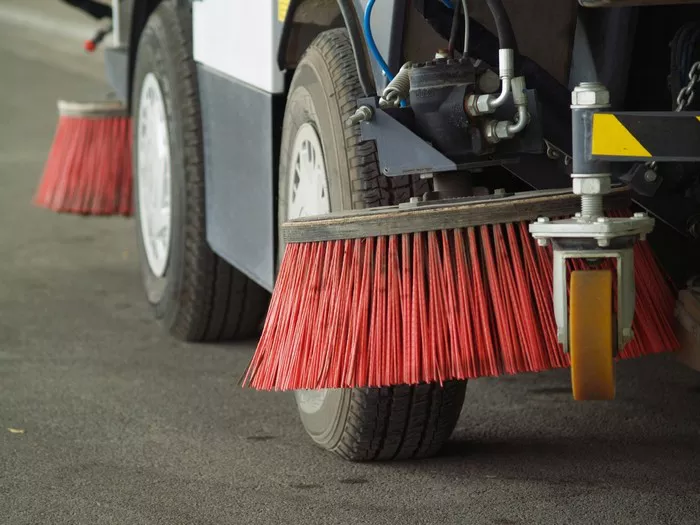As the unsung heroes of cleanliness, sweepers play a vital role in maintaining hygienic and organized environments. From bustling city streets to serene suburban sidewalks, sweepers ensure that public spaces remain free of debris and clutter. In this comprehensive guide, we delve into the multifaceted duties and responsibilities of a sweeper, shedding light on their indispensable contributions to society.
I. Introduction to Sweeping:
Sweeping is not merely a mundane task; it is an essential aspect of sanitation and aesthetics. Whether performed manually with a broom or mechanized through street sweepers, the objective remains the same: to remove dirt, dust, litter, and other unsightly substances from surfaces. Sweepers operate in diverse settings, including urban areas, residential neighborhoods, commercial complexes, and industrial sites.
II. Duties of a Sweeper:
1. Manual Sweeping:
a. Sweeping sidewalks, pathways, and pedestrian zones to eliminate debris and maintain a clean appearance.
b. Clearing litter from public spaces such as parks, plazas, and recreational areas to enhance the ambiance and usability of these locations.
2. Mechanized Sweeping:
a. Operating street sweepers equipped with rotating brushes and vacuum systems to efficiently clean roadways, highways, and parking lots.
b. Collaborating with municipal authorities to schedule sweeping routes and ensure comprehensive coverage of designated areas.
3. Trash Collection:
a. Emptying trash receptacles and waste bins to prevent overflow and maintain sanitation standards.
b. Sorting recyclable materials from general waste, contributing to environmental sustainability efforts.
4. Leaf and Debris Removal:
a. Clearing fallen leaves, branches, and other natural debris to prevent blockages in drainage systems and maintain aesthetic appeal.
b. Conducting seasonal clean-up activities to address foliage accumulation and prepare outdoor spaces for changing weather conditions.
5. Event Support:
a. Providing cleaning services during public events, festivals, and gatherings to manage crowds and minimize litter accumulation.
b. Collaborating with event organizers and local authorities to implement waste management strategies and ensure a clean and safe environment for attendees.
III. Responsibilities of a Sweeper:
1. Safety Protocols:
a. Adhering to safety guidelines and protocols to prevent accidents and injuries while performing sweeping tasks.
b. Using personal protective equipment (PPE) such as gloves, safety vests, and steel-toed boots to mitigate potential risks associated with handling hazardous materials.
2. Environmental Awareness:
a. Practicing eco-friendly cleaning methods and utilizing sustainable equipment to minimize environmental impact.
b. Educating the public about the importance of waste reduction, recycling, and proper disposal practices to foster community involvement in environmental conservation efforts.
3. Public Interaction:
a. Engaging with residents, business owners, and visitors to address concerns, gather feedback, and foster positive relationships within the community.
b. Serving as ambassadors of cleanliness and contributing to the overall perception of a neighborhood or city as welcoming and well-maintained.
4. Continuous Improvement:
a. Participating in training programs and workshops to enhance skills, learn new techniques, and stay updated on industry best practices.
b. Collaborating with colleagues and supervisors to identify areas for improvement and implement innovative solutions to enhance efficiency and effectiveness.
IV. Conclusion:
In conclusion, sweepers play a pivotal role in upholding cleanliness, safety, and environmental stewardship in various settings. Through their diligent efforts and unwavering dedication, they contribute to the well-being and quality of life of individuals and communities alike. As we acknowledge the invaluable contributions of sweepers, let us extend our appreciation and support for their tireless commitment to keeping our surroundings clean and pristine.
FAQs
Q1. What qualifications are required to become a sweeper?
A1: Becoming a sweeper typically does not require formal education or specific qualifications. However, candidates must possess physical stamina, attention to detail, and a strong work ethic. Prior experience in cleaning or maintenance roles may be advantageous, but on-the-job training is often provided to new hires.
Q2. What are the challenges faced by sweepers in their line of work?
A2: Sweepers encounter various challenges in their daily tasks, including inclement weather conditions, heavy traffic congestion, and occasional confrontations with members of the public. Additionally, handling potentially hazardous materials and navigating busy urban environments require vigilance and adaptability.
Q3. How can communities support and appreciate the efforts of sweepers?
A3: Communities can show appreciation for sweepers by maintaining cleanliness in public spaces, properly disposing of litter and waste, and acknowledging their contributions through gestures of gratitude and recognition. Additionally, advocating for adequate resources and support for sanitation initiatives can help elevate the status and visibility of sweepers within society.

